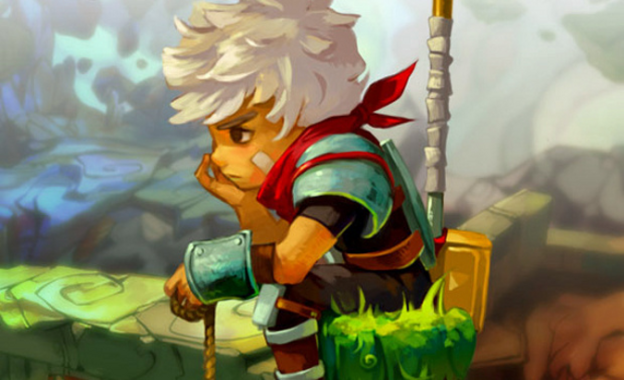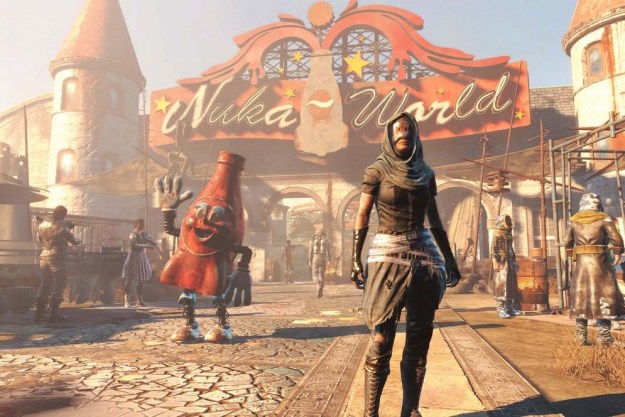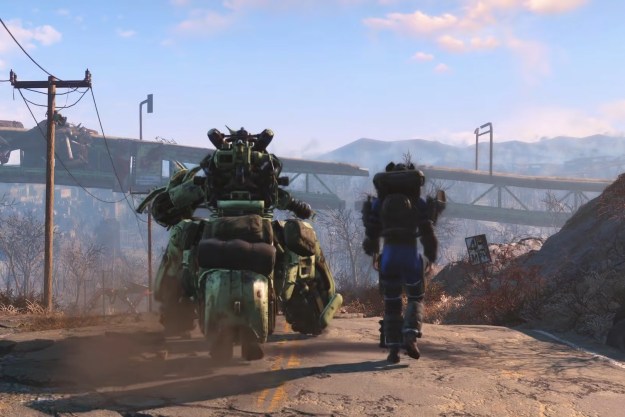
Bastion is an unusual success story in gaming. Not the “clever indie hits it big” aspect; you can expect that to happen at least a few times every year. No, the thing that sets apart Supergiant Games’ beautiful action-RPG is its very existence on multiple platforms. The game was originally released on Xbox Live Arcade, but has since made its way to PC/Mac and iOS platforms. Ports aren’t exactly unusual, but Supergiant’s delivery method was.
The team took a full year to re-develop the game for iOS after its summer 2011 launch on XBLA and Steam. The delay is attributed to Supergiant’s attitude toward ports. Studio founder Amir Rao delivered a talk on “Multiplatformism” at the 2013 D.I.C.E. Summit last week in which he spoke directly to his team’s philosophy on cross-platform development. “Port” is something of a dirty word at Supergiant; the content-complete iOS release took time to develop because of the premium placed on nailing the interface correctly.
“We focused most on making [Bastion] feel right for each place we put it,” Rao told us in a recent interview. “It’s a huge challenge, thinking about how you imagine your games across all those different interfaces and how you can put the same creative energy into solving the problems of each. For us, that’s why it took a long time to do each version of Bastion.”
Even just the initial work on Bastion took time. This is a game that gestated for nearly two years before reaching release readiness. “We started in September of 2009 and we developed the game and developed the game and developed the game,” Rao said. “It was just two of us to start, before we added our audio director and our art director… and all the other people who worked on it. That kind of built up over time.
“Bastion started with a really simple idea that had nothing, I think, to do with why it was so well-received,” Rao continued. “We wanted to build an action-RPG in which you could sort of build the whole world yourself. It was a really simple idea that we just started building on.”
The game fleshed out slowly as the Supergiant team grew naturally, organically. Adding new minds and new perspectives to the project bred different ideas. Some of the game’s most popular elements didn’t come until after this happened.

“A lot of what was special about Bastion actually came… when we tried certain ideas, like the reactive narration,” Rao recalled. “Our 2D style came from when we hired Jen [Zee]. The music came straight out of Darren [Korb]’s early musical noodlings on trying to make something that sounded like what we were going for, tonally. It’s not like there was a big game design document [or a] super-clear articulation of the vision, but there was a lot of threads running through that we wanted to try to deliver on. I think the combination of those things is what made Bastion work.”
In many ways, this speaks to the overall philosophy at Supergiant. There’s a basic understanding of the fact that the best way to gauge the quality of a work is to actually play the thing. To put aside the baggage of being a game’s developer and step into the mindset of the player. At Supergiant, that awareness has bred a team that is willing to experiment frequently, until things can fall into place.
“Ideas need to be of a scope that we can very quickly try them and iterate on them and make them into something better than what the original idea was. I think that does mean we often layer stuff on, that we build over time,” Rao explained. “You often don’t know what the game needs until you’ve built the thing. We’re always aiming for that complete experience where everything is working together and in concert, and I think the way you get that is you build it up slowly over time.”
Validation came for Rao and the rest of Supergiant in September 2010, when Bastion debuted at PAX. “We entered the PAX 10, which is a contest that they have at PAX Prime where they show independent games. We got in, so we all got into a van in San Francisco and drove all the way to Seattle, which was a terrible decision in retrospect. The first four hours were fun, like a road trip, and then it was like a million more road trips that just kept happening and never ending.”
The arduous journey turned out to be well worth any hassle. “We were just blown away by the response. We did not expect the kind of reaction we got, but it made us really [appreciate that] until it’s ready, there’s no reason to have to talk it up. It was helpful for us to learn that the game could speak for itself.”
The process of building the game for other platforms was approached with care. Supergiant is a small team – seven back then, and nine as of now – which means that there are only so many resources to go around. Instead of splitting the team up to work on new versions for multiple platforms or add fresh content for those platforms, each new release was tackled sequentially and only after the previous one was out the door.

“I think that we were willing to change content more than we were willing to [add it]. We certainly added stuff; there’s a lot of added art that comes with redoing a menu or redoing an interface or redoing a heads-up display. So certainly there were additions, but that’s more to the game feel and the game interface,” Rao explained.
“We’re totally willing to change what we made and to add onto it, but we never really tried to add a bunch of content. For us, the differentiator between each platform was going to be playing it on that platform, and it feeling native to that platform. The only thing we did that was [content-oriented]… the Steam version has a little easter egg, an homage to Portal. That was something we just kind of did as fans of the game. That’s just a cool thing for people who happen to be fans of the same games we are.”
That last comment really gets to the heart of Supregiant’s success. This is a small team of passionate gamers, and they’re all people who have the restraint to be able to step back from an ongoing project and consider it objectively. Bastion is a testament to that fact. Rao isn’t willing to discuss what’s next yet, but his enthusiasm speaks to a bright future for Supergiant.


